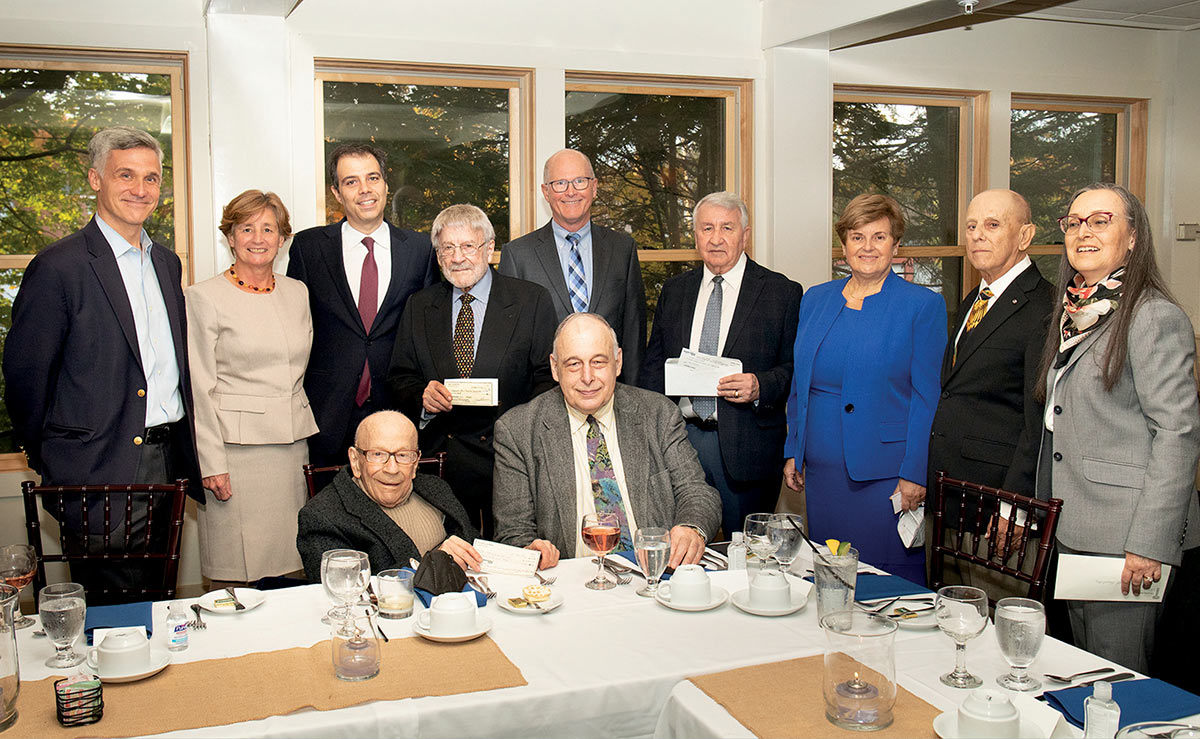Bright Shall Thy Mem’ry Be: In Memoriam

John C. Rouman
“From the moment he was aware of who he was as a child of Greek immigrant parents, he took a great interest in learning about Greek life, ancient Greek history and the glory that once was Greece,” says his brother, Dr. James Rouman. Having learned to read and write in Greek at an early age, John quickly demonstrated that he was born to become a teacher. “He organized a Greek school to which he assembled all the neighborhood kids and tried to teach them Greek, when at the time he was no more than 11 or 12,” says James. “Even as a child, he was proud of who he was and was determined to convey his knowledge of Greek to others.”
When Dan Pitkow ’91 arrived at UNH’s first-year orientation undecided what language to study, a chat with Rouman convinced him to take his class in ancient Greek. “He turned me on to a whole new world that I didn’t know existed and inspired me to dive deeper into what interested me, not limited to the standard classics curriculum,” he says. After graduation, Pitkow, with Rouman’s encouragement, traveled extensively in Greece and elsewhere, grateful that “Doc,” as his students called him, urged him to follow his instincts and see the world.
Jacob Skinner ’04 met Rouman in the fall of 2000 when he was the faculty professor at Phi Kappa Theta fraternity. It didn’t matter that Skinner’s major was philosophy rather than classics. When he expressed a special interest in learning ancient Greek, Rouman offered to teach him in his spare time. They held lengthy discussions about ancient poets and philosophers, and Rouman helped Skinner get into the NYC Teaching Fellows program after graduation. The two men developed a lifelong friendship, with Rouman always available for thoughtful conversations or “the best” recommendations. “He helped shape more lives than probably anyone will ever know,” says Skinner.
After serving in the U.S. Navy in World War II, Rouman earned degrees from Carleton College and Columbia University and studied Byzantine history, linguistics and Greek epigraphy (the study of deciphering ancient inscriptions) at several universities. He earned a doctoral degree in classics from the University of Wisconsin in 1965, joining the UNH faculty later that year. He retired from UNH in 1999, having won the prestigious National Award for Excellence in Teaching of Classics and the Distinguished Teaching Award from UNH.
Professor Rouman helped shape more lives than probably anyone will ever know.”
Although devoted to the classics, Rouman was fully engaged in modern life: He traveled, enjoyed nights at the opera and mastered the technology that allowed him to stay in touch with many of his former students. He was also devoted to his Greek Orthodox faith. “I don’t know anyone who had a deeper faith than Doc,” says Skinner. “He knew so much, but his greatest conviction was always that this isn’t all there is.”
Rouman’s legacy continues through the John C. Rouman Classical Lecture Series at UNH, which for more than 20 years has welcomed visiting classicists from the U.S. and abroad to campus to discuss wide-ranging topics of Greco-Roman civilization, and with the John C. Rouman Scholarship, established to promote the study of both Greek and Latin at UNH. Scholarship recipients are first- or second-year students showing great promise of excelling at both languages, without regard for financial need. Rouman donated generously to both funds, but his students say by far his greatest contribution was to the lives of those he taught and mentored, passing on his prodigious knowledge of the classics and his example of living life to the fullest to future generations.